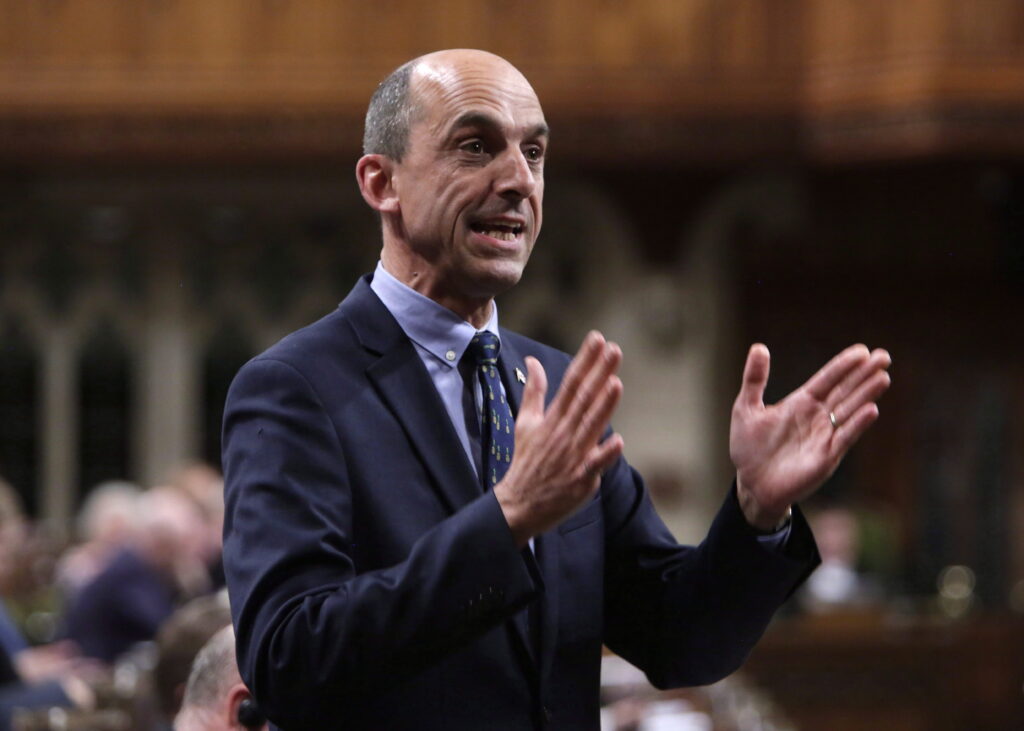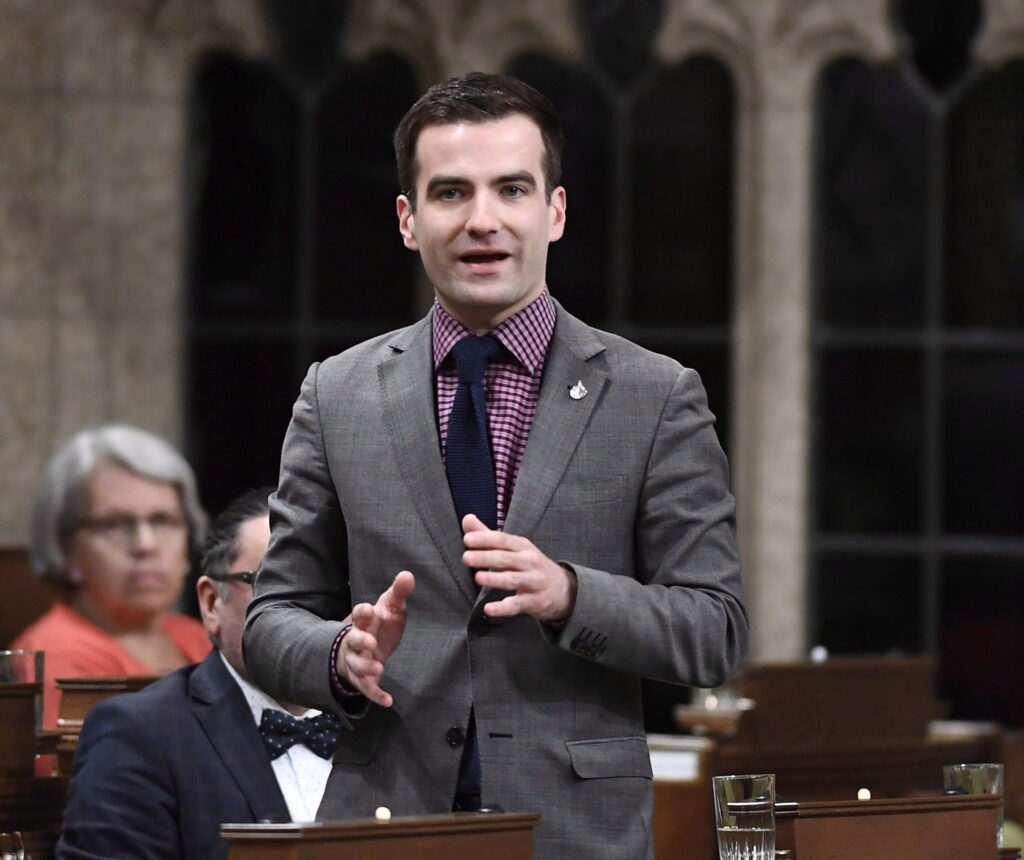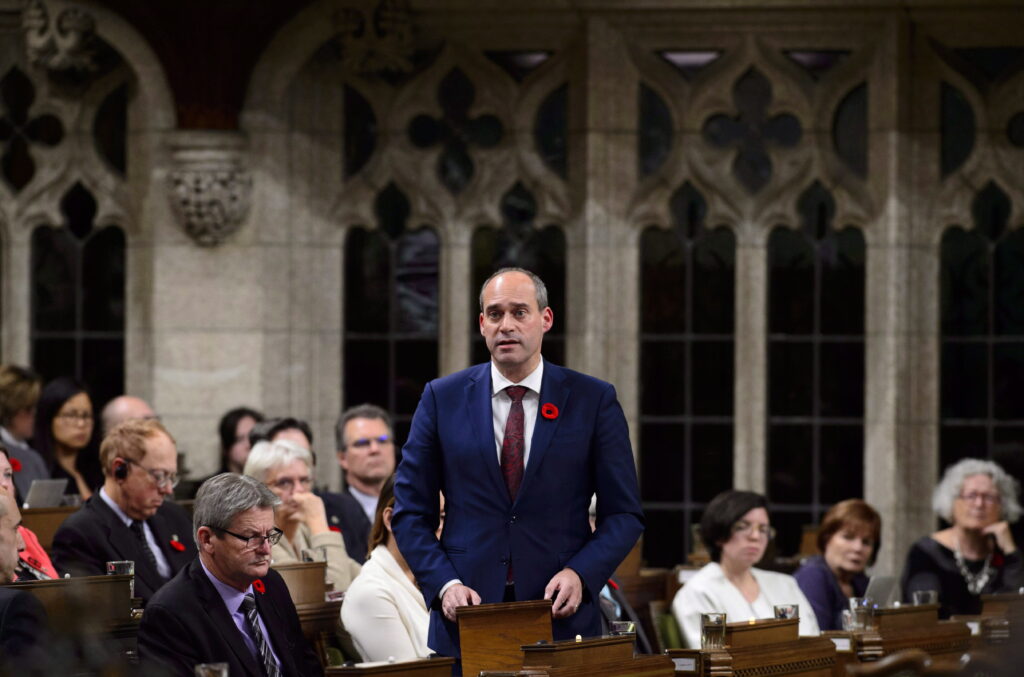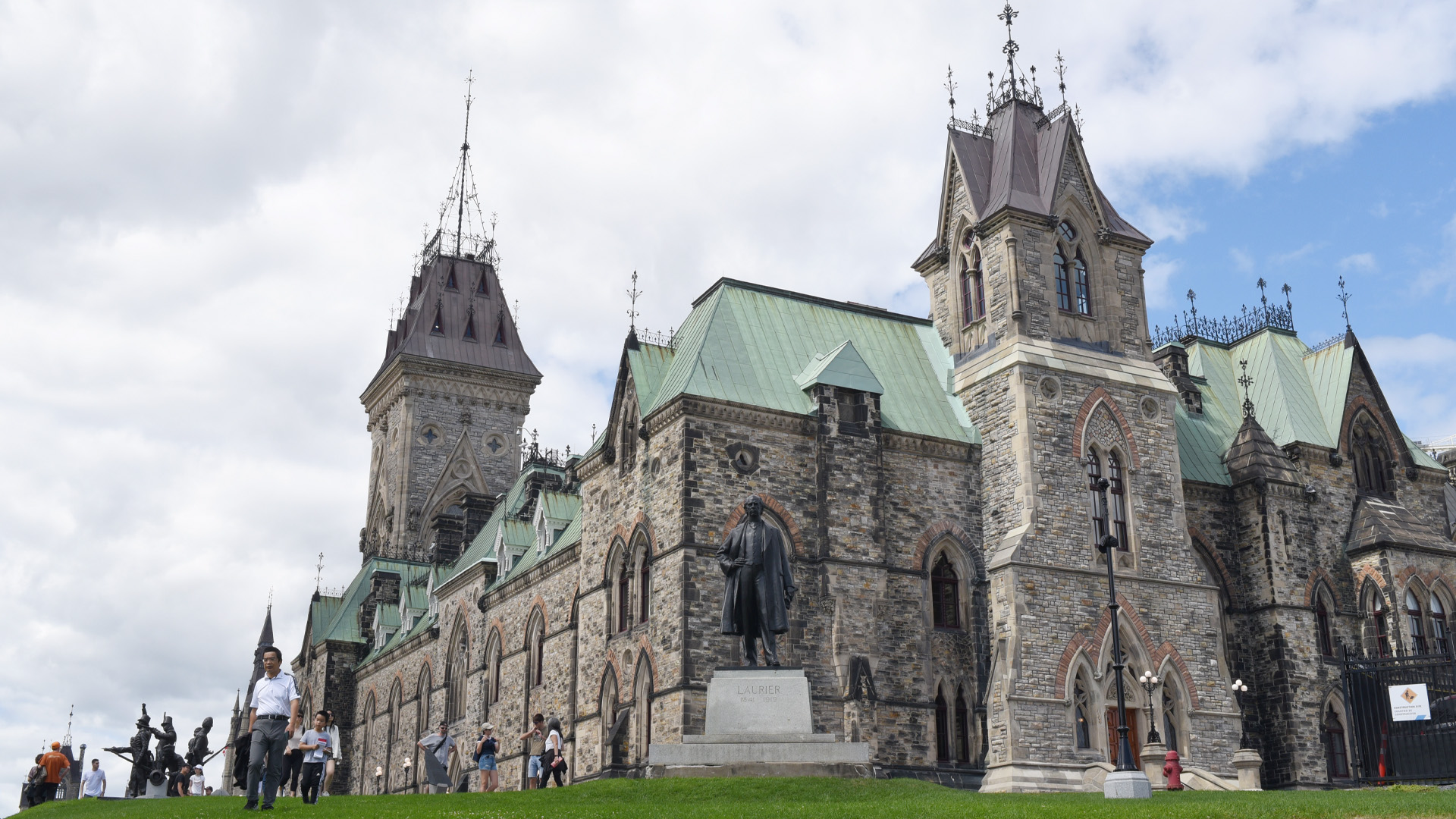
(Version française disponible ici)
We know what politicians sound like on the job. But it’s only when their term comes to an end that they can speak candidly about their experiences and opinions, for example, on the place of French in the House of Commons.
As part of its MP Exit Interview project, the Samara Centre for Democracy created Les Personnages de la Chambre, a podcast in which six former federal MPs recounted their real-life experiences. Liberals Linda Lapointe, Rémi Massé and Jean-Claude Poissant, New Democrats Guy Caron and Matthew Dubé, and Conservative Stephen Blaney shared their personal experiences and real feelings about their parliamentary work.
These interviews revealed the unique experiences of Quebec MPs, serving their constituents as francophones in Ottawa.
Of the six former elected officials we heard from – all born in Quebec – five speak French as their first language, and one English. Each had their own views on the use of French, the importance of language rights and the influence these issues had on their own mandate, but they also agreed on certain themes.
Together, they stressed the need to institutionalize language rights training, they paid close attention to their own use of French in Parliament, they saw the advantage of bilingualism to better serve their constituents, and identified the particular challenges of interacting with French-language media.
Speaking your own language in the Chamber
The majority of our interviewees did not feel that they lacked opportunities to express themselves in French in the course of their duties. Nevertheless, everyone stressed the vigilance and importance they attached to speaking and using French in the House of Commons.
Conservative Stephen Blaney, for example, demanded that all his briefing notes be written in French. For his part, New Democrat Guy Caron was careful to alternate between French and English during the question period to ensure that both languages were used equally. Why? “Because when you speak as a spokesperson, when you speak as a minister, you speak on behalf of the entire country.” In so doing, he demonstrated the importance he attached to a position meant to be representative of the official bilingualism that prevails in Canada.

Liberal Jean-Claude Poissant explained that “we speak our language in the House. It doesn’t matter, we have the right to speak our language.” In general, the former MPs interviewed spoke positively of the language resources such as interpretation tools, translation services, and language training that were available to them in Ottawa.
A “constant battle”
The former MPs’ opinions differed, however, on the efforts required to ensure that French is respected and valued within the Parliament.
When asked if French was valued on the Hill, Liberal Rémi Massé was fairly positive: “I can’t say it’s a priority, but I can’t say it was neglected either, because as much as my English-speaking colleagues tried to converse with me in French, we also had all the [translation] services we needed.” As for Mr. Blaney, he found it was “a constant battle, and that’s why often, even if I could express myself in English, I would express myself in French.”
Some of the MPs noted that their bilingualism was perceived as an advantage and that they felt it gave them a better understanding of their constituents’ issues. Even so, they feel that language preservation was largely left to the individual MPs, rather than a driven by specific policies or structures.
“There is no second official language”
Liberal Linda Lapointe described herself as a proud francophone who has always felt respected in the House of Commons. When she first took her seat in Ottawa, an MP told her: “Linda, there is no second official language. There are two official languages, and they’re on the same footing.” So, she’s always treated them the same. Nevertheless, she felt a responsibility to ensure that the next generation of francophones enjoys the same respect for their culture that she did.
This perspective explains her focus on updating the Official Languages Act. Ms. Lapointe noticed a persistent asymmetry between the two official languages, particularly online, where texts are predominantly in English. While all the MPs interviewed for the podcast expressed a commitment to ensuring the survival of French in this country, Linda Lapointe in particular talked about the future and the need to “put measures in place to make sure it stays that way.”
The former MP attached great importance to preserving the country’s francophone heritage, and stressed the importance of integrating the francophone perspective into Canadian legislation and strengthening language services.
“If we spoke in English, we wouldn’t be emphasizing the importance of French”
According to New Democrat Matthew Dubé, language can be used as a weapon by the French-language media. He noted that “in French, there’s a higher standard” and that “it’s a harder language to master, even for francophones.”

Mr. Dubé cited as an example media criticism following a grammatical error in one of his campaign publications, describing the behavior of journalists as akin to “paparazzi.” He reflected, “In French, I think all elected officials are held to a certain rigor that I don’t see in English”.
His NDP colleague Guy Caron shared his perspective to some extent. Despite his attempts to ensure a balance between the two languages, Caron believes that “journalists tend to overlook” the greater difficulty of French and really blame MPs for each mistake. According to him, people in the media don’t understand that “if you speak in English, you’re not emphasizing the importance of French.” Despite this, he noted that during his time in office, the NDP had a majority of francophones for the first time, which helped to change the party’s linguistic culture.

Strengthen francophones’ confidence in their parliamentary institutions
Building a sense of national identity that is both inclusive and representative requires careful attention. Each MP had a distinct experience as a francophone navigating an English-majority House of Commons, accountable to francophone and anglophone constituents, as well as to the media. In our interviews, linguistic identity emerged as a defining characteristic that shaped the way Quebec MPs represented their constituents.
The former Quebec MPs interviewed faced unique challenges during their time in the House of Commons, including the complexities of navigating French use in the House of Commons – and the criticism received when only one language was used. Their efforts to promote the francophonie in the practice of Canadian democracy are important for building francophones’ confidence in their parliamentary institutions and in their belief in their MP’s ability to truly represent their communities. This trust is essential to advance sustainable and inclusive democratic values in Parliament.










